Venue
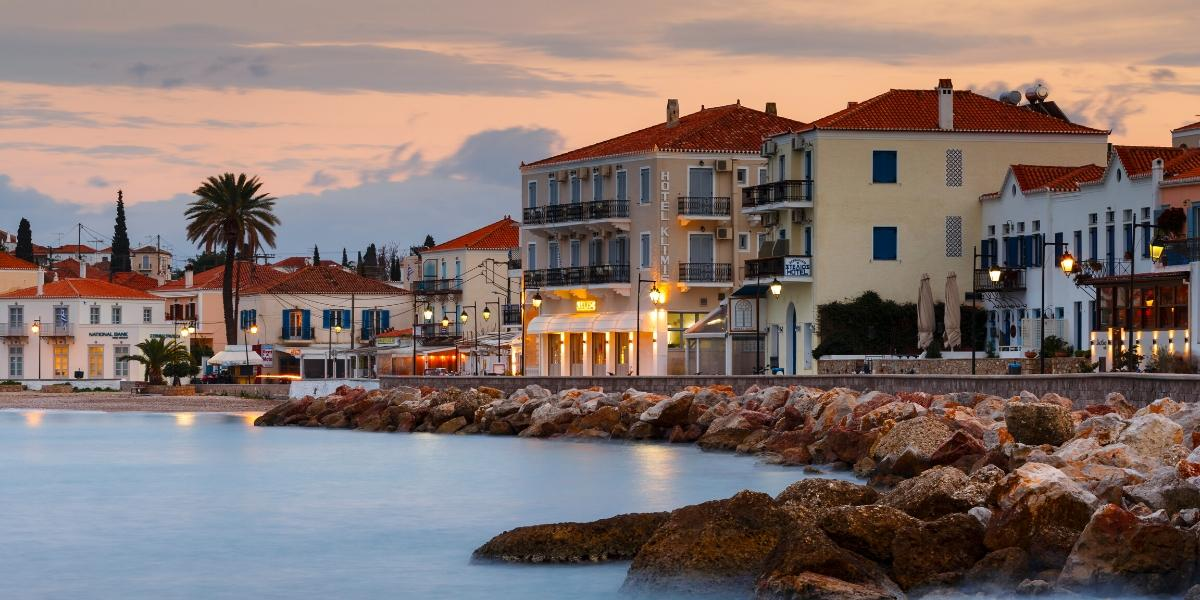
The summer school will be hosted at The Anargyrios and Korgialenios School of Spetses (A.K.S.S.), a historical and cultural heritage site of the island of Spetses. The A.K.S.S. was established in 1923 on a picturesque 120.000m² parcel along the northern coastline of the island. It functioned as a boarding school until 1983, based on the famous British schools of Eton and Harrow and was the inspiration behind the John Fowles Novel “The Magus'' who was a professor at the school.
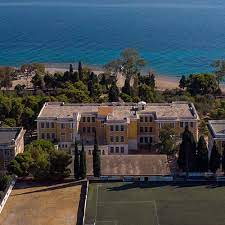
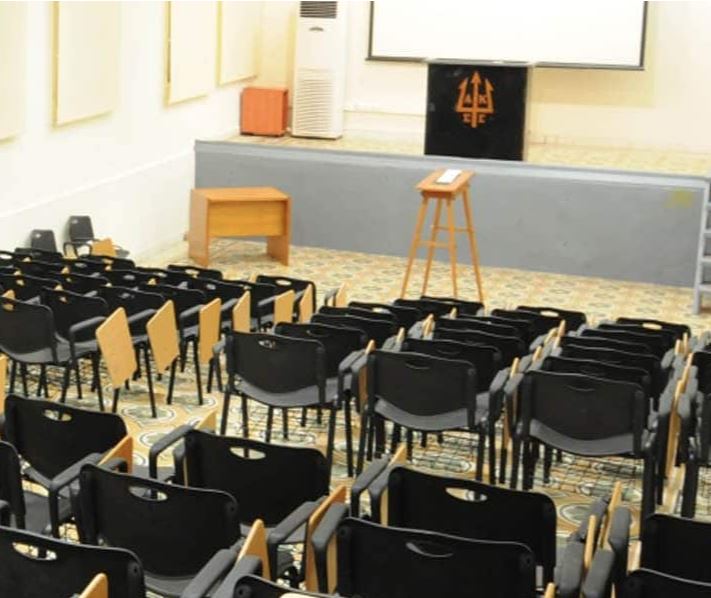
The venue is found in an enclave of unique natural beauty, surrounded by pine forests and olive groves and embedded with beautiful gardens throughout. It includes a complex of five buildings of neoclassical architecture with state-of-the-art conference facilities. Each year the A.K.S.S. hosts several national and international scientific conferences, and this year it will be venue for our summer school!
(see also: https://akss.gr/main/en/ )
Location
Known as Isola di Spezie (the island of Spices; due to the somewhat spicy scent of the pine trees and local herbs such as oregano and thyme) under Venetian rule and Pityoussa (pine-clad) in ancient times, Spetses, at just 54 nautical miles from Athens, is a picturesque, car-free island with a unique architecture, naval history and culture.
The 18th century is considered the Golden Age of Spetses. Then, the island flourished, developing into a significant naval power, dominating the major shipping routes of the Mediterranean. Today, the two-hundred year old captains’ mansions lining the coast are testimony to the vast wealth and grandeur of that time. The mansion of the Greek War of Independence heroine Laskarina Bouboulina now houses Bouboulina’s Museum, while the Spetses State Museum is housed in the mansion of Spetsiot revolutionary leader Hatziyannis Mexis and contains artefacts representing more than 4000 years of history.
With its rich history and culture, museums, beautiful beaches, crystal clear waters, cosmopolitan nightlife, Spetses is the perfect location, offering a unique opportunity for researchers around the world to participate in state-of-the-art research activities and exchange innovative ideas while enjoying a short-break or long vacation.
Sources:
https://www.visitgreece.gr/islands/saronic-islands/spetses/
https://spetses.gov.gr/eimai-episkeptis-5973/spetses-history/
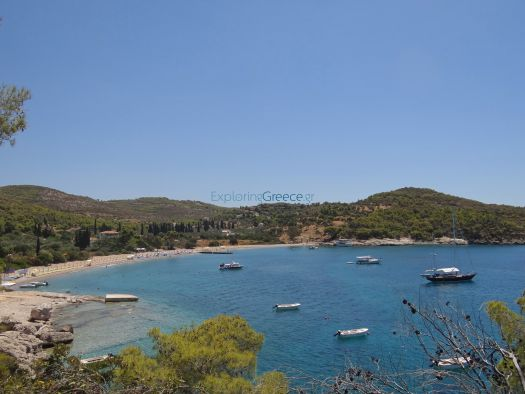
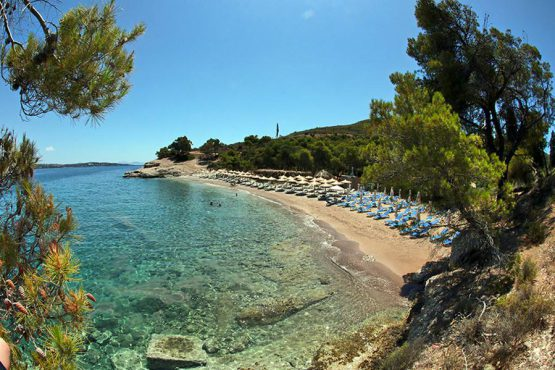
The venue is found in an enclave of unique natural beauty, surrounded by pine forests and olive groves and embedded with beautiful gardens throughout. It includes a complex of five buildings of neoclassical architecture with state-of-the-art conference facilities. Each year the A.K.S.S. hosts several national and international scientific conferences, and this year it will be venue for our summer school!
(see also: https://akss.gr/main/en/ )
We also recommend a tour of Spetses
Spetses is the perfect place to enjoy a wonderful walk as the distinctive architecture, cobble streets and fragrant gardens filled to the brim with jasmine and bougainvillaea make it a joy to discover the island on foot.
Start your walk in the main port of Dapia where the imposing and magnificent Poseidonion Grand Hotel. The hotel was first built in 1914 and was the brainchild of Sotirios Anargyros, in the style of the Negresco Hotel in Venice and the Carlton in Cannes.
A couple of minutes from the hotel is the house of Sotirios Anargyros built in 1904. The mansion is guarded by two Egyptian sphinxes – an exotic note rarely seen in a Greek island. A little way off from the Mansion of Anargyros is the Bouboulina Museum. Lascarina Bouboulina is one of the few female heroes of the Greek Revolution and notably one of the most renowned women in the history of Greece. The museum is housed in the home of Bouboulina and displays a collection of personal objects and memorabilia. The building itself is noteworthy for its architectural details, especially the intricately carved wood ceiling in the main salon.
Another Museum a little further off from Dapia, is the Xatzigiannis- Mexis Museum, which is housed in the superb mansion of Hatzigiannis Mexis, one of the notables who played a leading part during the fight for Greek Independence. The first floor is the one open to the public and displays a collection of relics and objects depicting the island’s history and culture from the Classical period to the beginning of the 20th century. Sculptures, Roman coins, Byzantine icons, local costumes, embroideries, portraits, historical documents and weapons are amongst the permanent collection.
After perusing the memorabilia of the Mexis collection, we suggest a stroll from Dapia to the Old Harbour, via the coastal route. It is approximately 2 km, but well worth it. Along the way, marvel at the Captain’s mansions, perched high from the cobbled road and surrounded by beautiful gardens with intricate stone patterns. From the coastal road a short path leads to the Monastery of Saint Nicholas which was built approximately in the beginning of the 18th century. Tradition has it that during a storm wives and mothers of sailors would take oil from the monastery and pour it in the sea to calm the waters ensuring the safe return of their loved ones. When in 1821 the Greek revolution broke out, Spetses was the first of the Greek islands that raised the flag of the Revolution the morning of April 3rd 1821 in the patron saint church of St. Nicholas, located in the old harbour.
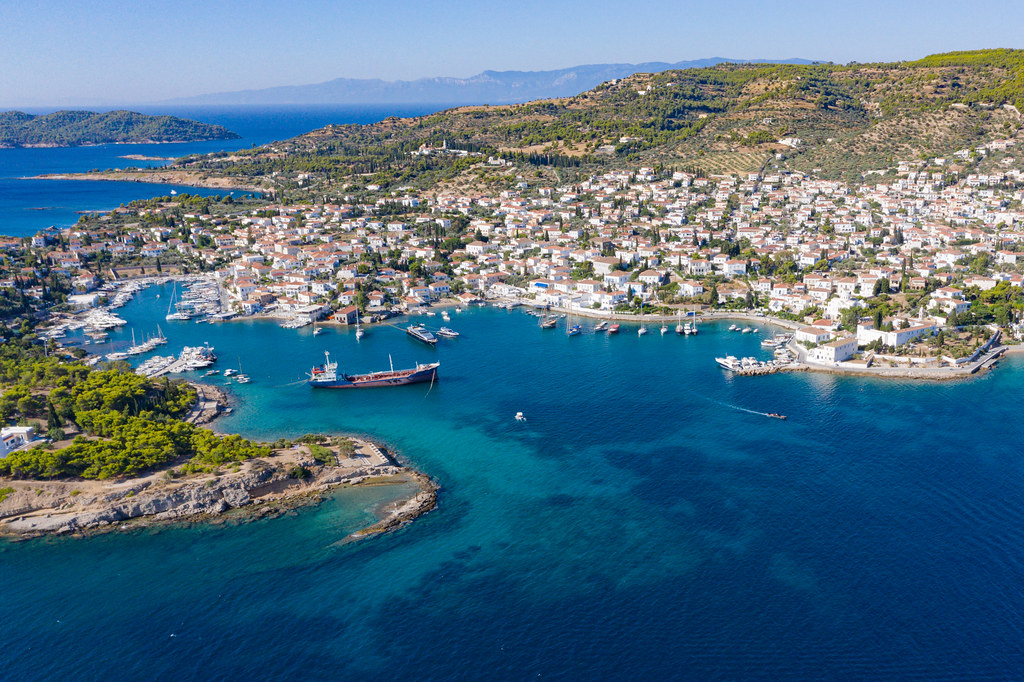
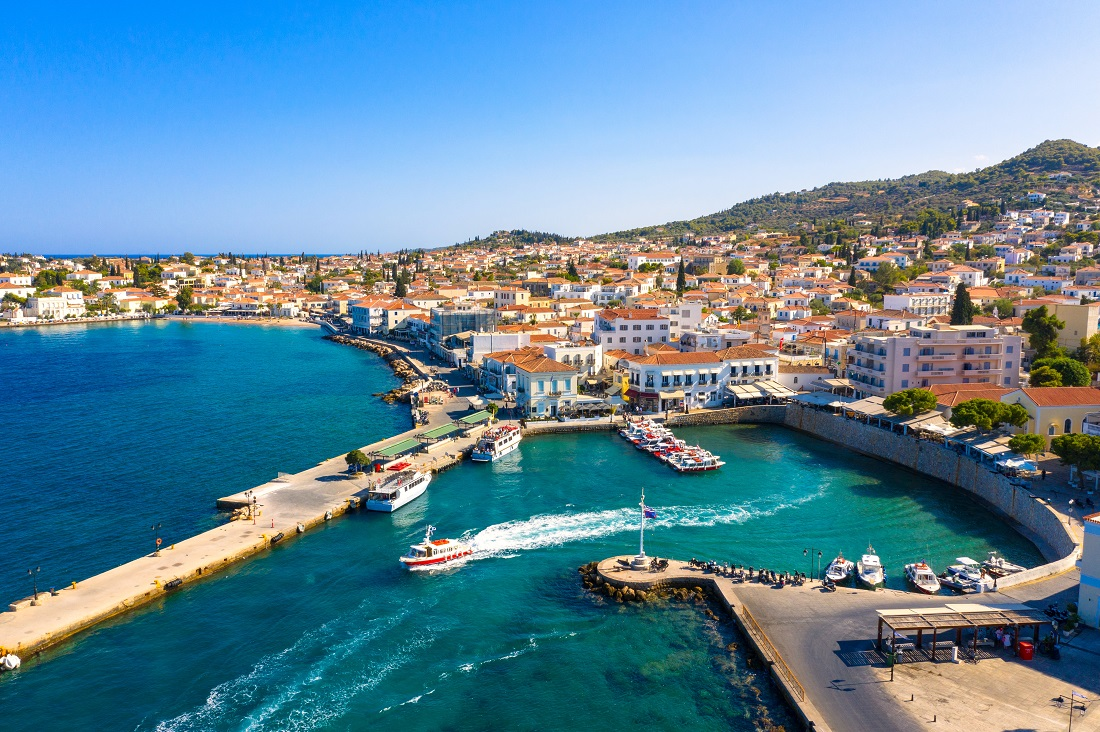
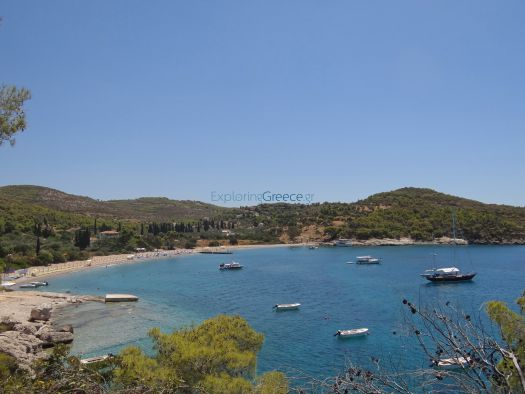
Continuing along the coastal road, one reaches the traditional Spetses shipyards, which are the only ones in Greece that have been in operation constantly since the revolution until this day. The shipbuilding tradition of Spetses is unequalled in the Mediterranean with the craft being carried down from generation- at the moment only five remaining shipyards are in operation and it is a pleasure to watch the craftsmen at work. The wood is soaked in sea water for durability and all the materials used follow the traditional way of boat building.
After the shipyards, it is a short walk to the lighthouse on the tip of the Old Harbour. The lighthouse is one of the oldest in Greece (it was built in 1837) and is still in operation. In the gardens around the lighthouse, sculptures of renowned artist Natalia Mela, decorate the tip of the island.
Spetses Island is ideal for walking around, through cobblestoned alleyways at dusk, with accessible beaches nearby the town. However, there are alternative means of transportation. Cycling in Spetses is a great way to enjoy the whole island as the main road goes all the way around. Motorbikes suggest also an alternative. There are two main bus routes, as well, while, despite their limited number, you may find available taxis and vans to transport you. Traditional boats take you to the main beaches of the island. Sea taxis are also available to take you to the mainland and on the most beaches of the island. If walking is not your thing, you can take a romantic trip around the island in horse-drawn carriages and admire the grand mansions adorning the narrow-cobbled streets of the island.
Source:
https://www.visitgreece.gr/islands/saronic-islands/spetses/
https://spetses.gov.gr/eimai-episkeptis-5973/transportation-1-at-spetses/

